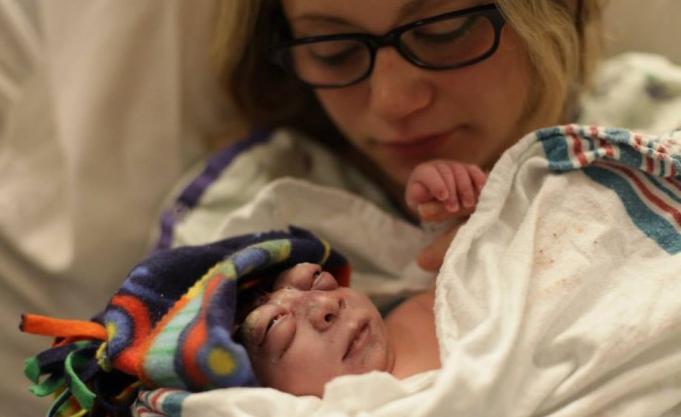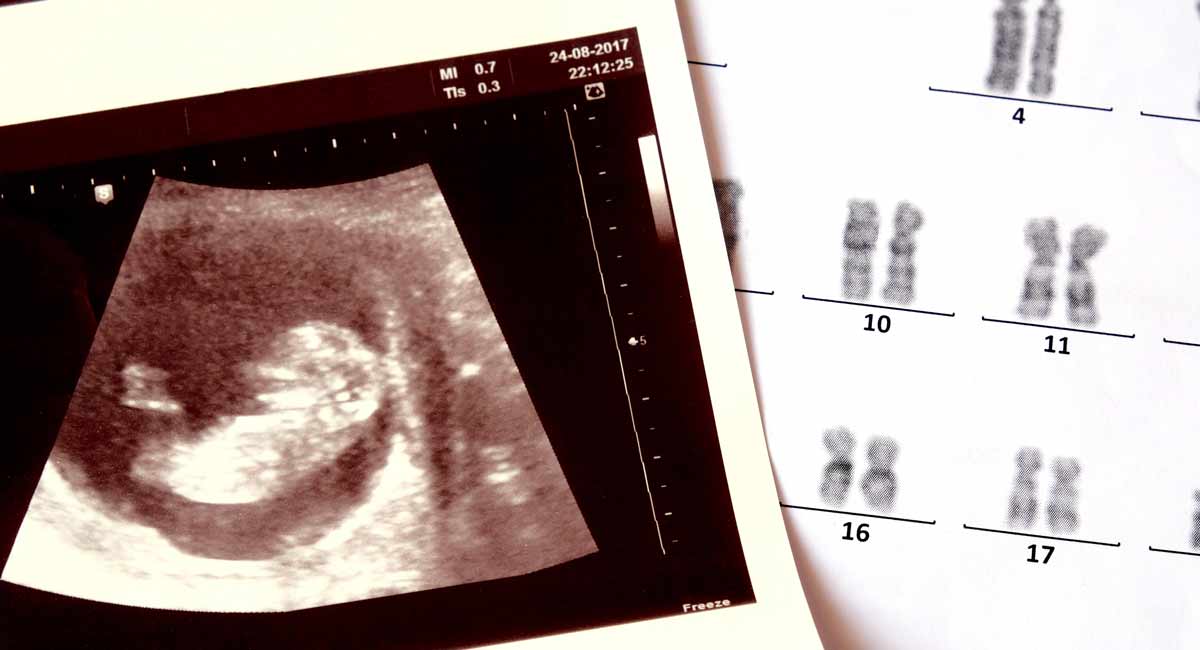For the pro-life community, prenatal screening can be a source of contention, but for parents faced with the diagnosis of their preborn child, prenatal screening can be the technological gift that allows them to properly and effectively care for their child. The problem is, prenatal screening has been hijacked by the abortion industry.
Though the more routine use of tests such as ultrasounds and amniocentesis didn’t begin in the United States until the 1970s, the development of these tools was already in the works two decades prior. Well before Roe v. Wade legalized abortion through all nine months of pregnancy in 1973, researchers were developing ways to learn more about not only the development of the preborn child but also whether or not a child would be born with any health conditions. The controversy is, of course, what happens with the information that is gathered from prenatal testing. In a pro-life society, that information would simply be used to give the mother and child the best possible care for the best possible outcome at birth and throughout the child’s life. But in a pro-abortion society, that information is used to instead discriminate against the child in the womb and kill that child through an act of eugenics.
When used appropriately and ethically, prenatal testing is a pro-life tool.
For example, prior to prenatal testing, a woman who was carrying a child with anencephaly – a condition in which the child’s skull doesn’t properly form and he isn’t likely to survive more than a few hours after birth – would have absolutely no idea that the precious child she was so thrilled to give birth to was dying. There was no way to prepare her or the child’s father or grandparents or siblings for this tremendous loss. Now, however, parents can learn this information ahead of time, allowing them time to grieve and prepare so that when they meet their child at birth they are able to focus on him, not his diagnosis, and even have family photos taken. They can spend their time loving him instead of having him whisked away for tests. They will have had time to get a plan in place for the baby’s funeral or for family members to have traveled from long distances to arrive in time to meet him.

Likewise, for the parents of a child with Trisomy 21, better known as Down syndrome, receiving the diagnosis ahead of time allows them to not only emotionally prepare, but it helps them to plan for their child’s needs. Knowing that their child may need extra care because of a heart condition or anticipated developmental delays would give parents the opportunity to meet with specialists prior to the child’s birth in order to give the child the best care possible. Knowing of a diagnosis such as Down syndrome ahead of time may also alter the family’s financial plan so they are better prepared for the future.
READ: Caution: Genetic testing is not 100% accurate
Similar arguments could be made for prenatal testing that allows treatment plans to be set in place for conditions such as cystic fibrosis and spina bifida. About 10 percent of children with cystic fibrosis will need bowel surgery immediately after birth, making it important to keep an eye on their bowels via ultrasound. Early animal testing has even shown that treating CF while the child is still in the womb can treat male infertility, which affects 98 percent of men with CF. As for spina bifida, fetal surgeons are now performing surgery on babies while they are still in the womb with amazing success rates, including the increased likelihood of independently walking. The results of prenatal surgery for spina bifida are proving to be better than surgery after birth.

Photo: EBU Photography
Parents who learn their child has Trisomy 18 (Edward’s syndrome) prior to the child’s birth will likely be told that their baby is “incompatible with life” and told to abort. But the truth is that these children aren’t necessarily going to die at birth as in decades past. New information and the right doctors are helping children with the condition to live longer and healthier. One man with the condition just celebrated his 18th birthday.
While some conditions will need an amniocentesis in order to confirm a diagnosis, many parents may not wish to go through with this test because it carries a small risk of miscarriage. That is completely understandable. But going through with any prenatal testing, especially non-invasive testing that doesn’t carry a risk of harming the baby, in no way should lead to the assumption that those parents don’t love their child. In the pro-life community, many parents will say that they skipped all testing because it didn’t matter to them if their child had certain health conditions or not. And it is their right to do so. But if a parent is determined to choose life no matter what, and if a blood test or ultrasound could help a child live better and even survive, then taking that test is not unloving. It is preparing.

Betsy Leaf insisted that she was keeping her little boy, Jacen, even after he was diagnosed with anencephaly and she was offered abortion.
READ: Prenatal screening shouldn’t equal a death sentence
Prenatal testing can help certain children live longer and healthier lives, so why do the doctors who diagnose them push abortion on the grieving and scared parents? One very sinister reason is that they are actually trying to eliminate people who may cost more money to care for, especially if the child is going to be using government healthcare programs. Or they may want to eliminate people with disabilities because they think that these lives aren’t worth living. It’s discrimination. It’s eugenics. And it must stop.
Another reason doctors may push invasive testing and abortion is that they fear facing lawsuits. And that fear isn’t unfounded. There have been numerous cases of parents suing doctors for the “wrongful births” of their children because they went undiagnosed during pregnancy and the parents didn’t have the chance to kill them before birth. Doctors could lose their entire livelihood over it.
The reality is that prenatal testing is a game changer, but it makes a big difference which team parents and doctors are playing for. When we approach a prenatal diagnosis with a pro-life vision, amazing things happen. When we approach a prenatal diagnosis with a pro-abortion vision, death happens.
“Like” Live Action News on Facebook for more pro-life news and commentary!







